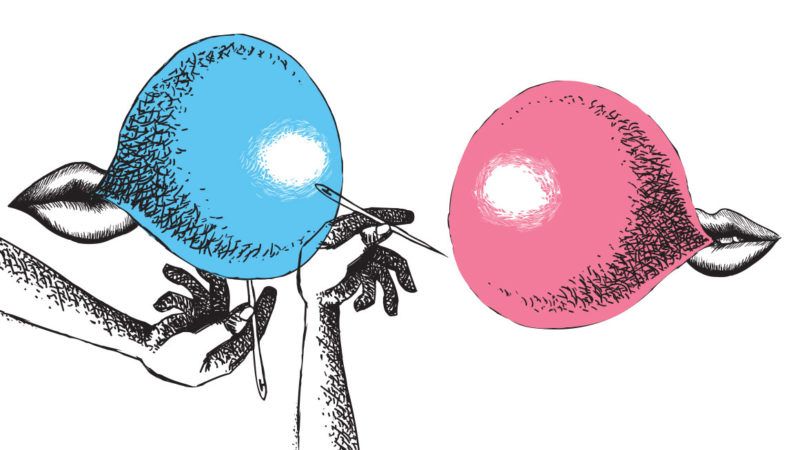The Media's Nervous Breakdown Over Race

If you were alive and on social media in early June, you were almost certainly swamped by scores of media and cultural organizations putting out statements, Instagram posts, and self-critical columns expressing solidarity in the fight against systemic prejudice.
"We recognize that there is much work to be done, and we are committed to engaging in this work to eradicate institutional racism," announced the Poetry Foundation, publisher of Poetry magazine. "I have tried to diversify our newsroom over the past 7 years, but I HAVE NOT DONE ENOUGH," confessed the editor in chief of Variety. The women's lifestyle publication Refinery29, like many websites, changed its homepage color to black instead of its usual peppy pink.
Within days, the heads of all those institutions were out of a job.
In summer 2020, the American media experienced something like a collective nervous breakdown. Against the backdrop of the coronavirus and associated lockdowns, with whole sections of the industry teetering on the edge of collapse, newsrooms from coast to coast engaged in a series of internal revolts about race, defenestrating editors over everything from headlines to Halloween costumes.
Current and former employees launched self-styled "name-and-shame" campaigns on Twitter to out editors and organizations whose commitment to diversity and equity were deemed insufficient. A Broadway actress created a public spreadsheet called "Theaters Not Speaking Out"; participants were encouraged to "add names to this document who have not made a statement against injustices toward black people." Heads rolled at The Philadelphia Inquirer, the Los Angeles Times, Bon Appétit, the National Book Critics Circle, Chicago's Second City Theater, The New York Times, and scores of other cultural institutions and corporations.
"Institutional leaders, in a spirit of panicked damage control, are delivering hasty and disproportionate punishments instead of considered reforms," noted a group of 153 writers and academics, including such left-leaning luminaries as Salman Rushdie and Noam Chomsky, in a joint letter published online by Harper's magazine on July 7. "Editors are fired for running controversial pieces; books are withdrawn for alleged inauthenticity; journalists are barred from writing on certain topics; professors are investigated for quoting works of literature in class; a researcher is fired for circulating a peer-reviewed academic study; and the heads of organizations are ousted for what are sometimes just clumsy mistakes."
The Harper's letter, like the actions that precipitated it, revealed a split within the broader intelligentsia. On one side are people defending the values of liberalism—free speech, due process, individualism. On the other are those chipping away broadly at institutions they judge to be abetting a corrupted, discriminatory power structure. One side laments each broken egg; the other is busy making omelets.
That divide was on stark display within minutes of the letter's publication, as an entire generation of left-leaning commentators and journalists rose up nearly as one to douse the whole effort with bile. "The signatories, many of them white, wealthy, and endowed with massive platforms, argue that they are afraid of being silenced," snarled a counter-letter signed by 164 writers three days later. "The irony of the piece is that nowhere in it do the signatories mention how marginalized voices have been silenced for generations in journalism, academia, and publishing."
There is an asymmetry of approach between anti-liberals—of both left and right—and their increasingly alarmed critics. While the latter camp tends to treat controversies and individuals on a case-by-case basis, the former is forever trying to herd people into binary categories. In the words of bestselling author Ibram X. Kendi, "You're either racist or antiracist; there's no such thing as 'not racist.'"
The Manicheans have special contempt for those who refuse such designations, especially when they're otherwise on the same side of the political spectrum. That the Harper's authors came mostly from the left and prefaced their brief complaint with a swipe at President Donald Trump bought them no sympathy from their progressive tormentors. So signatory Yascha Mounk founds an earnest new publication called Persuasion, even while being dismissed by such leftists as The Daily Beast's Laura Bradley as belonging to a "coven of fools."
This witch-burning moment will hopefully recede, but the fuel in this accursed year will continue piling up.


Show Comments (112)